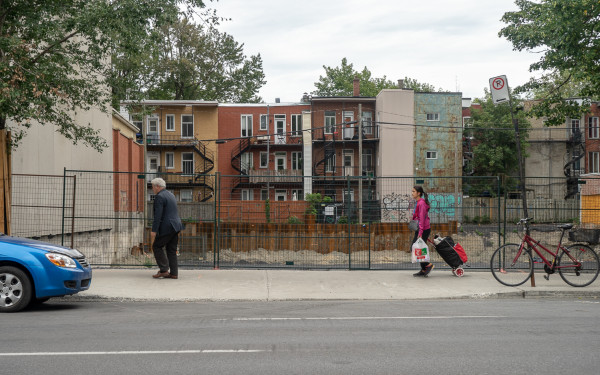CSU Facing Possible Negative Cash Flow as of Next Summer
Union Expects a Deficit of Over $135,000 This Academic Year
There may soon be an imbalance between revenue and “ever-growing expenses” at the Concordia Student Union, affecting “the financial sustainability of the [CSU’s] operations account,” VP Finance Heather Nagy said at a CSU council meeting last Wednesday.
“There are multiple plans that are in the works for this issue,” she said. “One plan is to do a 10-year assessment of the CSU’s financial position, five years in the past and five years in the future.”
The potential for a negative cash flow at the CSU beginning in June of next year led John Molson School of Business councillor Vicky Rodgers to ask Nagy how the union’s financial situation could affect whether or not next year’s elected executives will be able to deliver on their campaign promises.
“We won’t leave our term in office with the next people coming into a shit show,” Nagy said.
“I intend on working with the finance team and presenting a concrete plan of action maybe in January [detailing] exactly how we’re going to go about solving the issue of financial sustainability.”
In his executive report to council, CSU President Benjamin Prunty said the union’s executives are “somewhat confident” in their ability to resolve the most immediate concerns “without action needed from council,” but that dealing with longer-term financial issues will likely require input from council and Concordia undergrads.
“After removing the agenda and the orientation expenses from an analysis of our current spending, the union is going through roughly $135,000 per month in operating expenses,” he wrote.
“This kind of spending is well under what we can handle as an organization, but this does not mean that we will not need some kind of cash injection in the near future.”
Rodgers asked if an increase in the student union fee charged to undergrads was a possibility.
“Potentially,” Nagy replied, adding that the union was looking into the possibility of indexing the fee levy, but that it wouldn’t make any decisions before performing a financial analysis.
Budget Deficit Anticipated
Meanwhile, budget documents distributed ahead of the meeting show the CSU expects total expenses this school year to be slightly over $2.1 million, with a projected deficit of $135,173.
Prunty attributed the anticipated deficit to “contractual increases in overhead costs like the mandatory increases in pay for [the CSU’s] staff.”
He also said the union was “caught off guard” by the way that the university distributes money to the student groups on behalf of which it collects fees.
According to Prunty, the university anticipates how many students will be enrolled and then distributes money to student groups based on that estimate, taking back any money in excess of what was actually collected through student fees at the end of the year.
The CSU wasn’t aware of how the funding worked because of a new team in its financial office, Prunty told The Link.
Feasibility Studies on Daycare, Housing Co-op
Additionally, council voted at the meeting to spend $1,500 on producing a feasibility report on the possibility of opening a CSU-run daycare centre that would cater to student parents.
Council also approved spending $4,000 to produce a feasibility report evaluating the possibility of the CSU funding a student housing co-op. That funding will be given to the Unité de travail pour l’implantation de logement étudiant, a non-profit group that studies and promotes the construction of student housing co-operatives in Quebec.
The motion passed by council states that “student housing is an ongoing issue plaguing Concordia students, and Concordia University has been found to have the worst housing conditions surrounding its campus [of] any […] university on the island of Montreal.”
The funding for both feasibility reports will come from the union’s Student Space, Accessible Education and Legal Contingency Fund.
—With files from Verity Stevenson

3_900_600_90.jpg)
4_900_600_90.jpg)
2_900_600_90.jpg)



__600_375_90_s_c1.jpg)